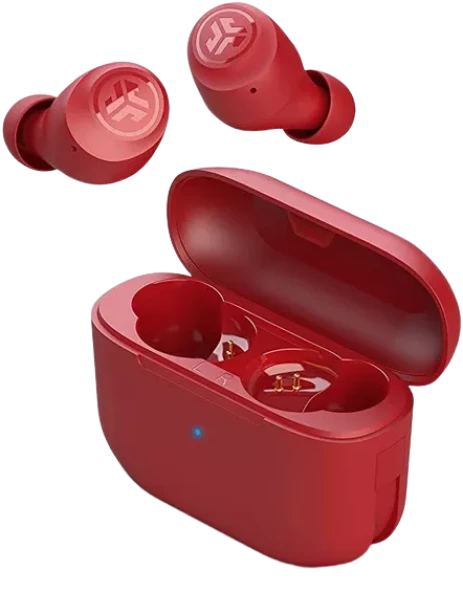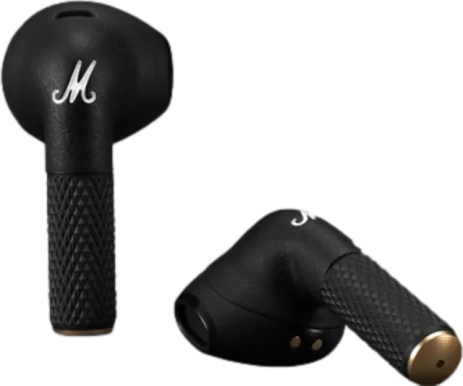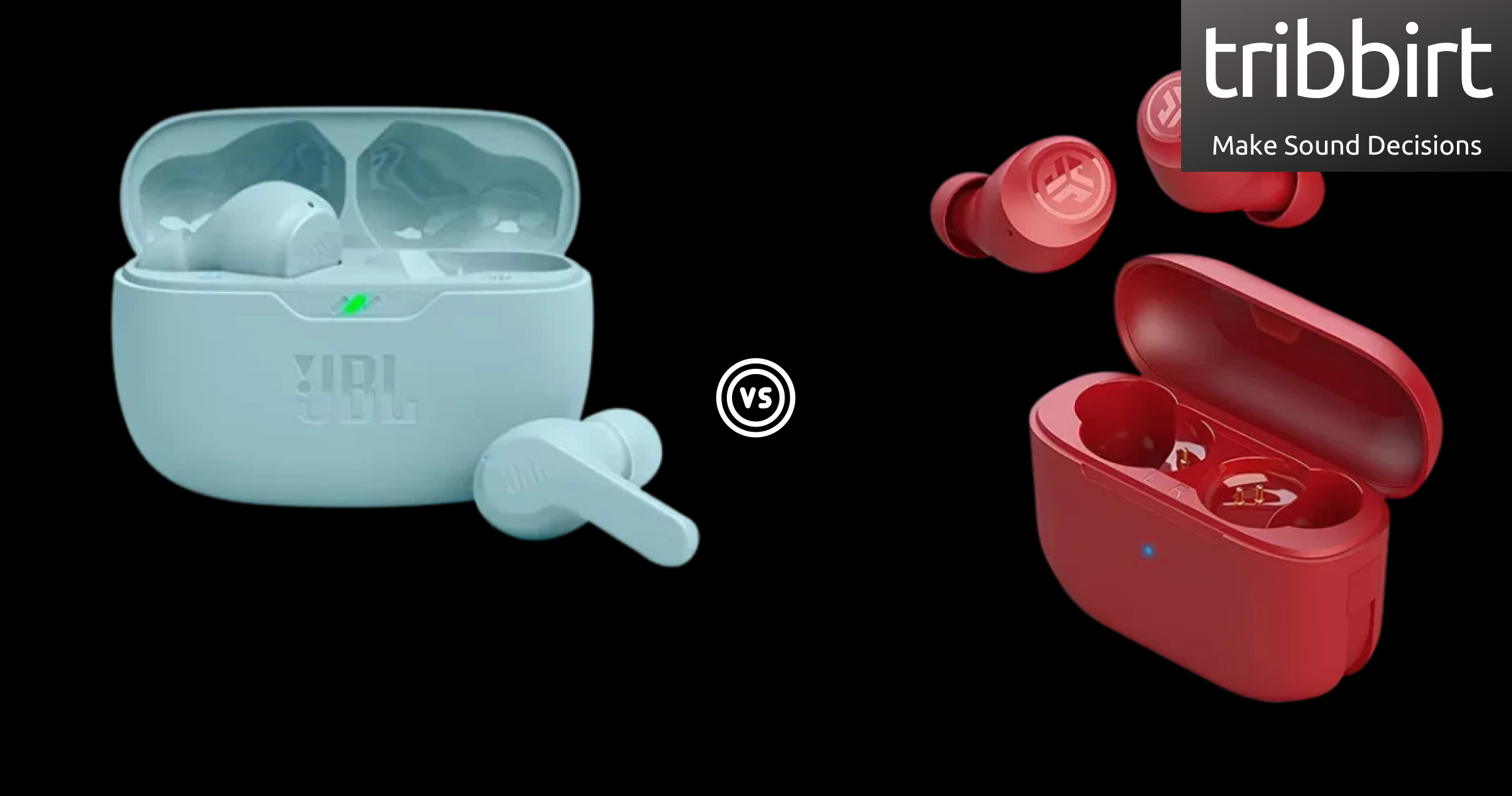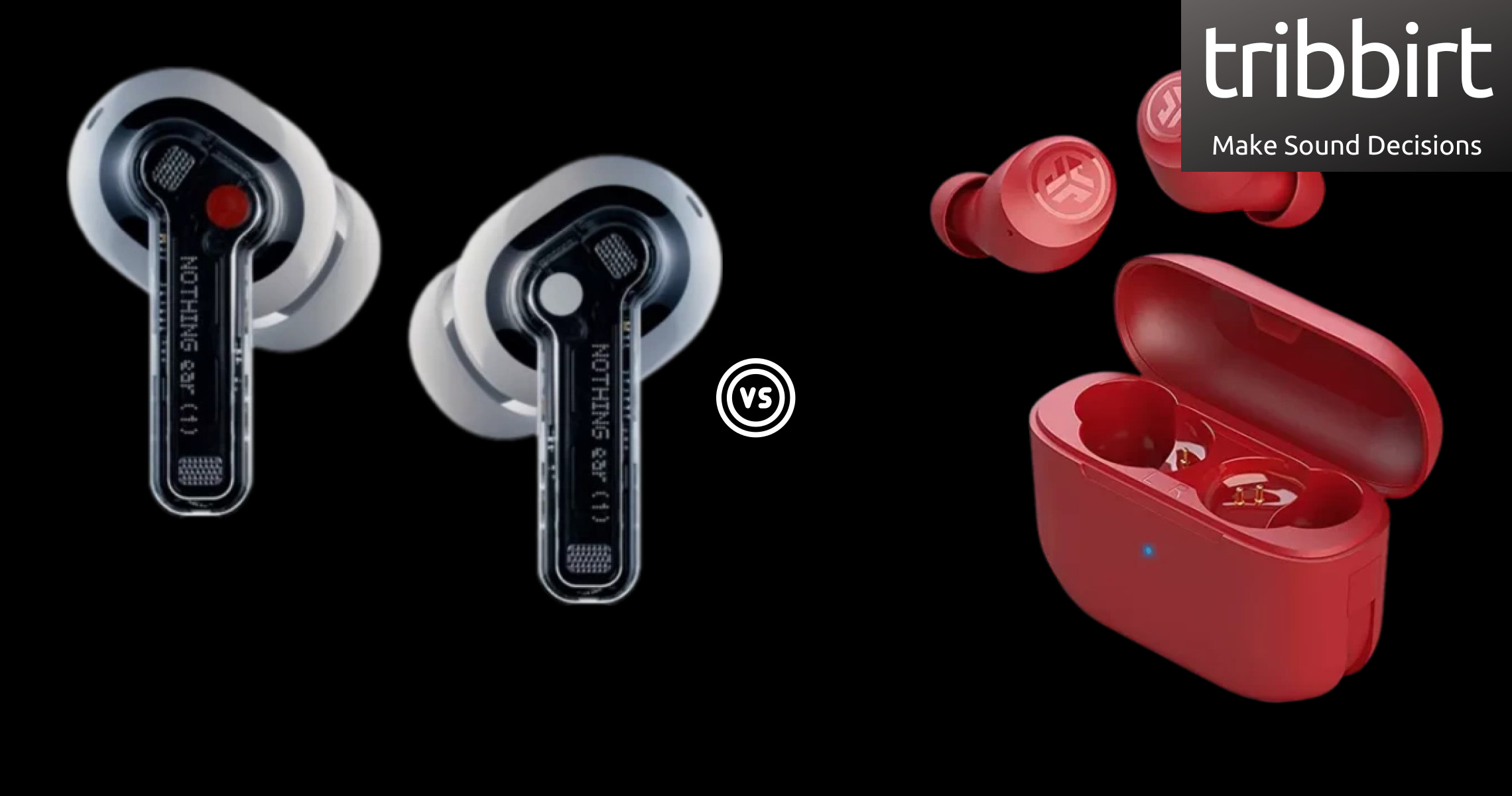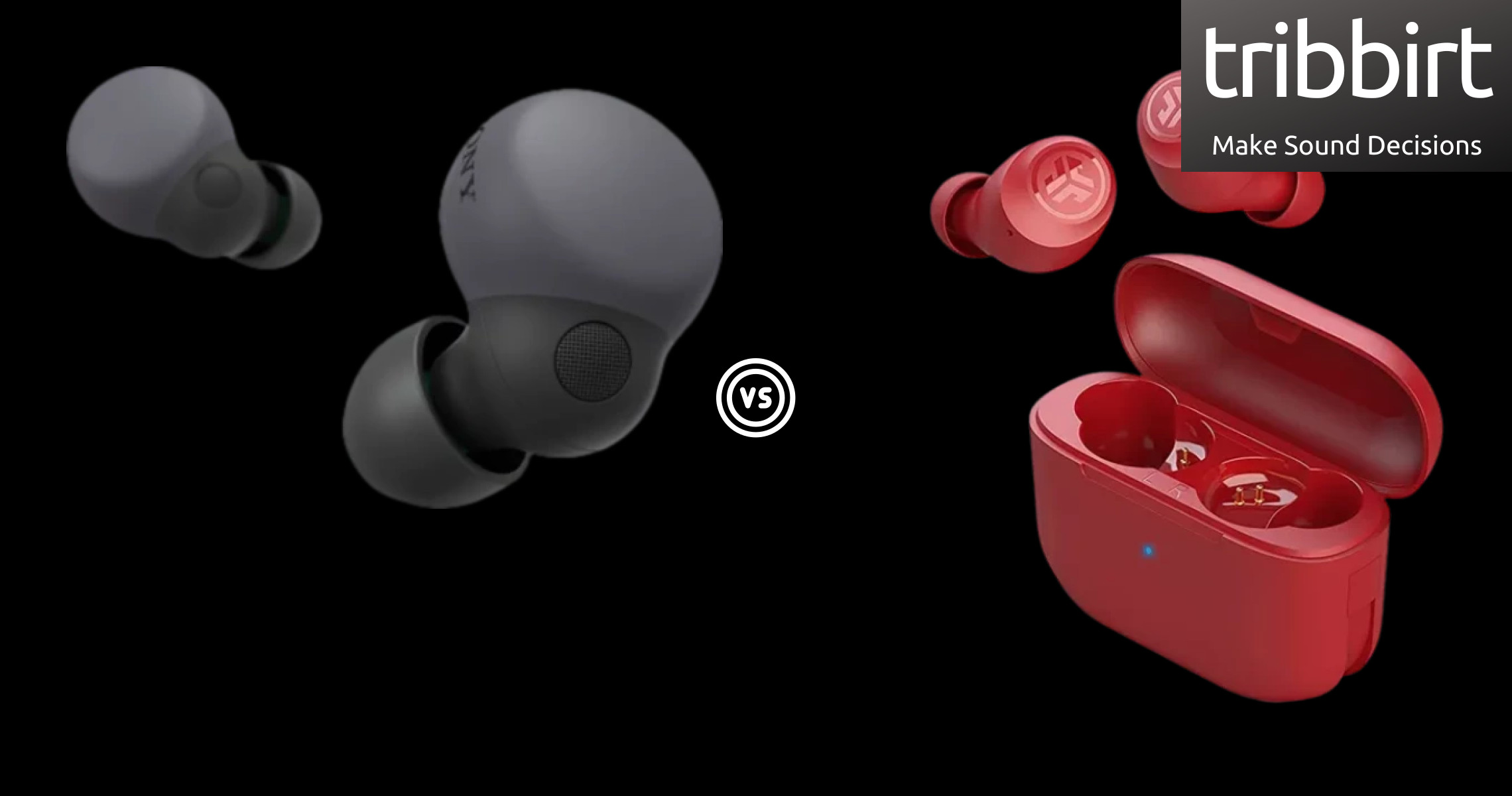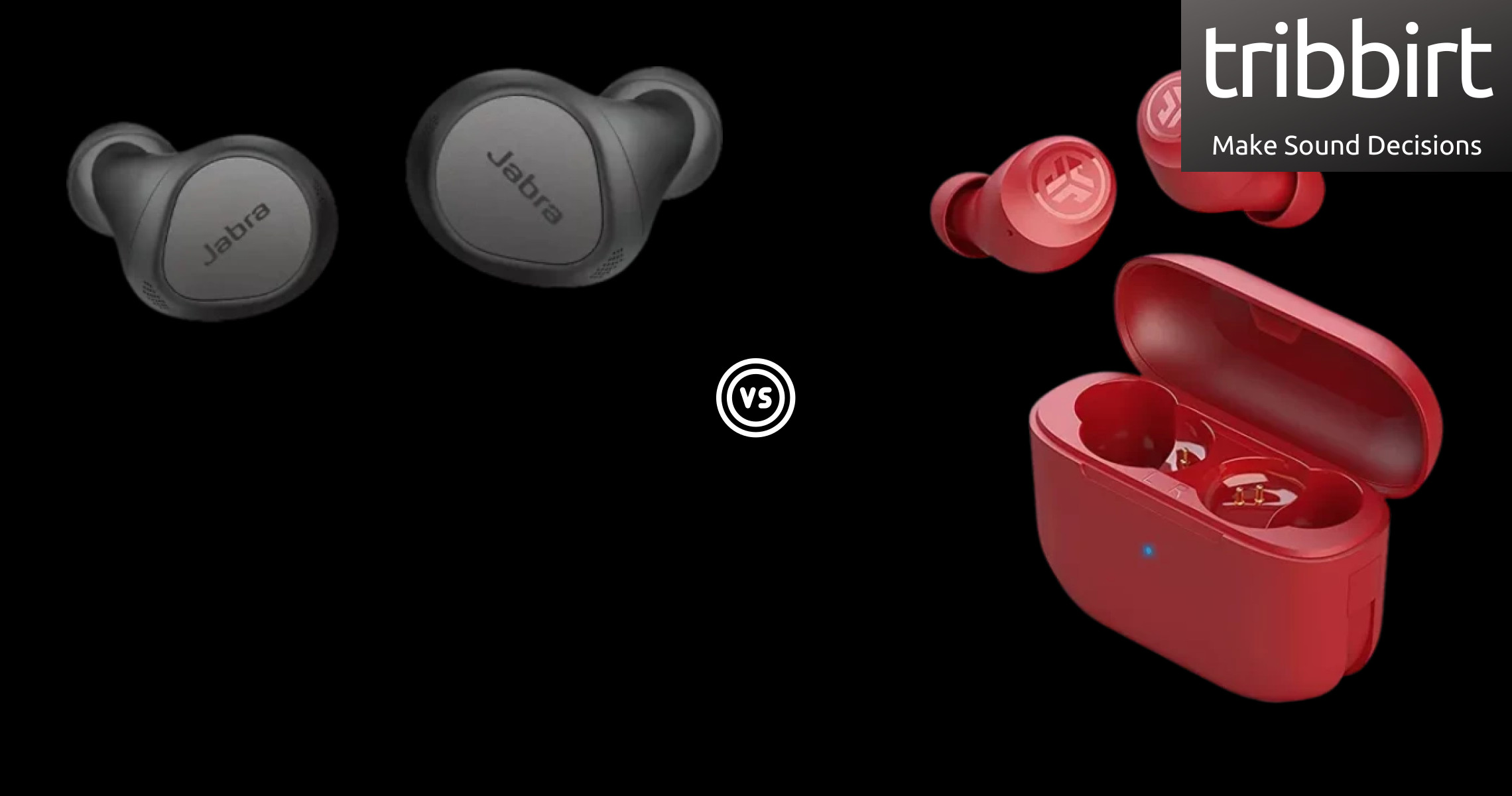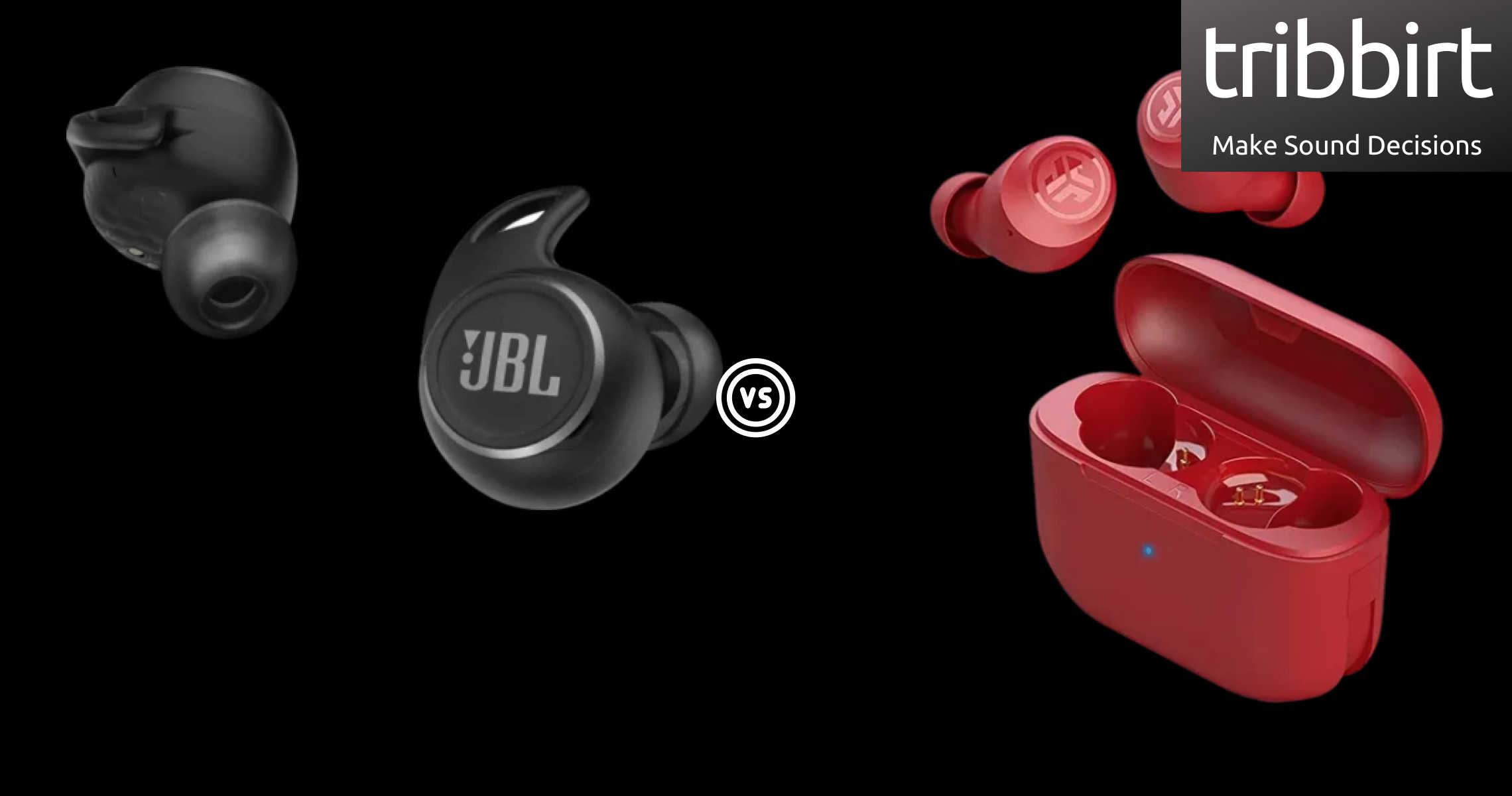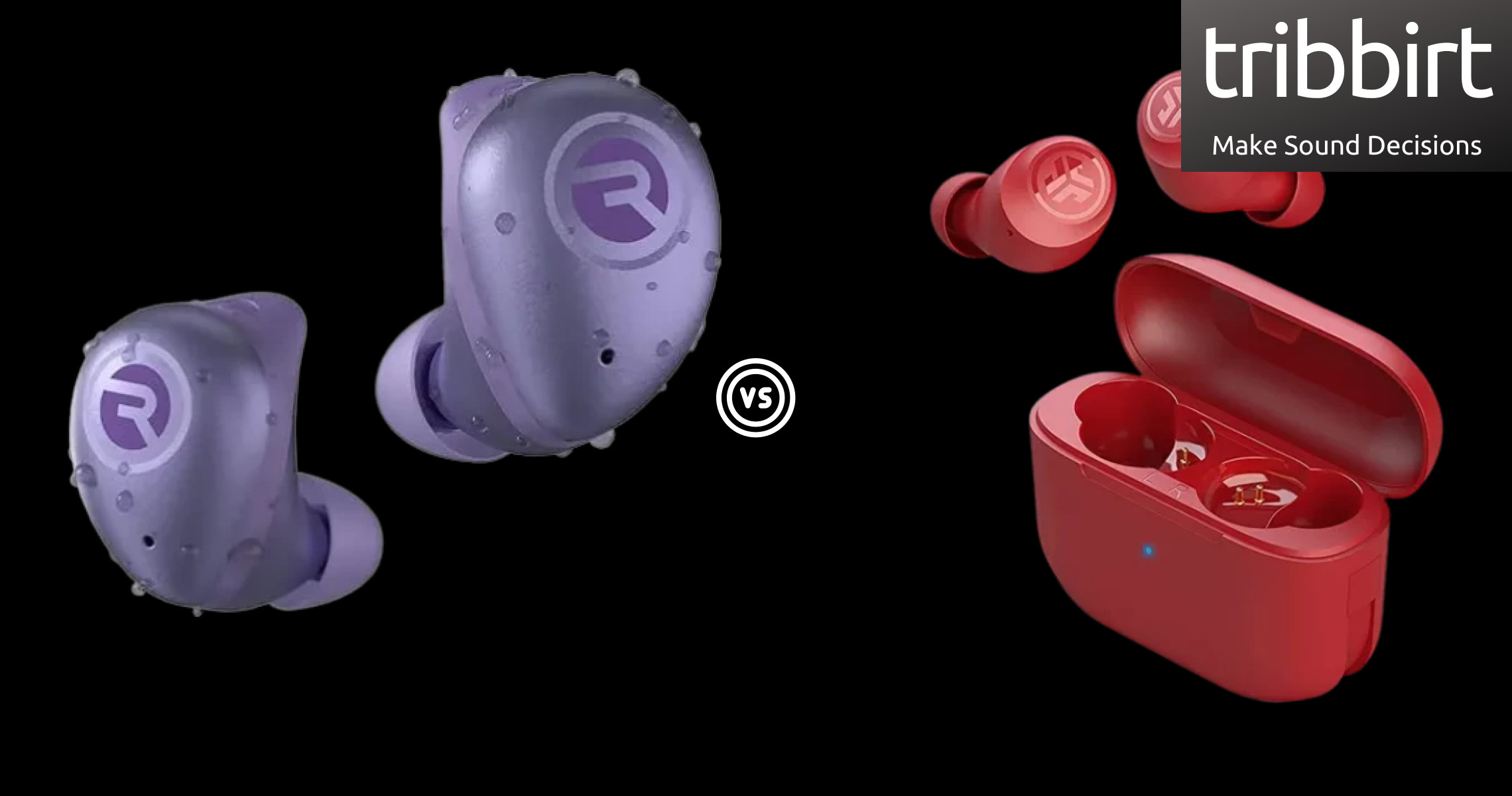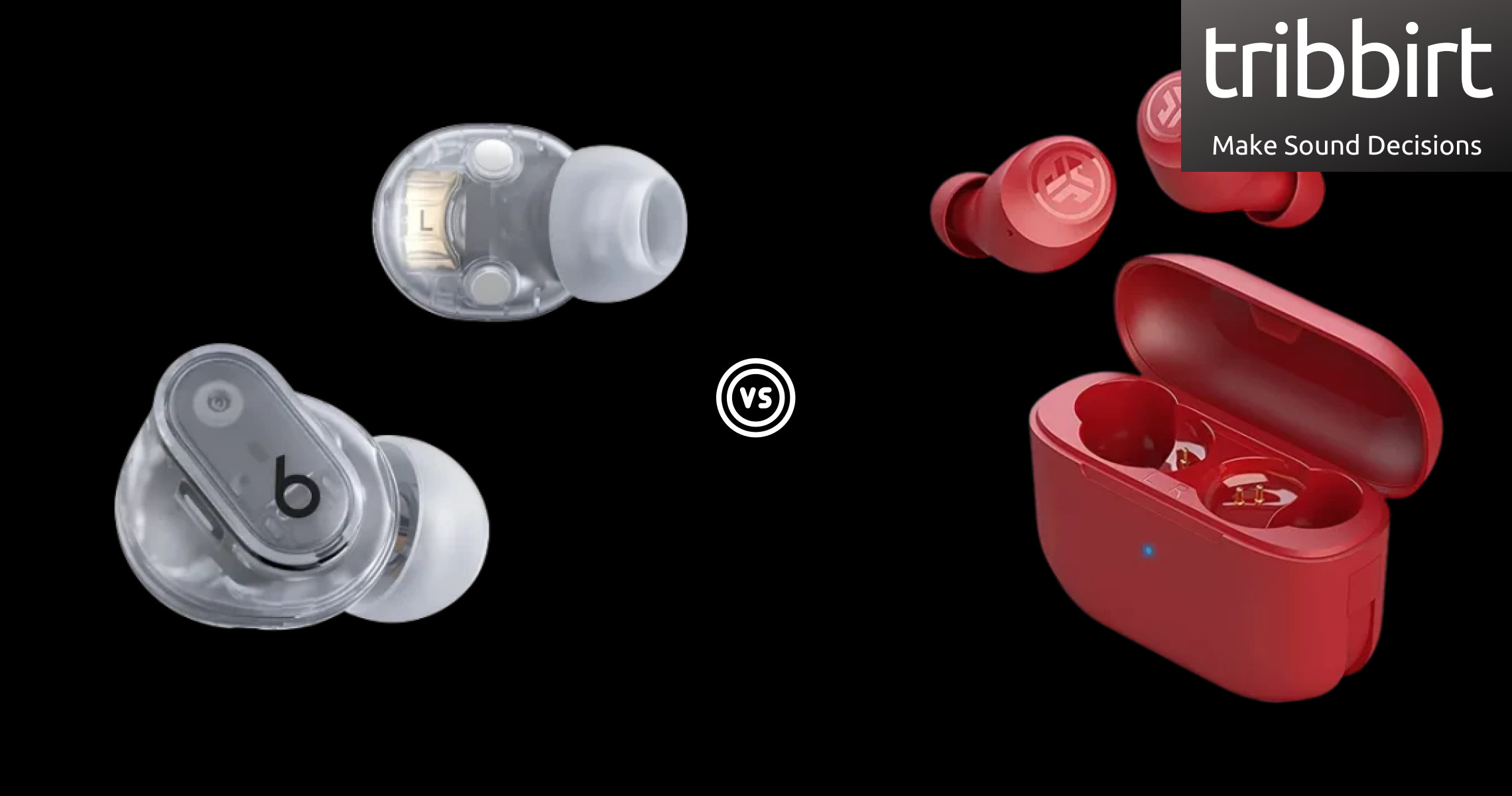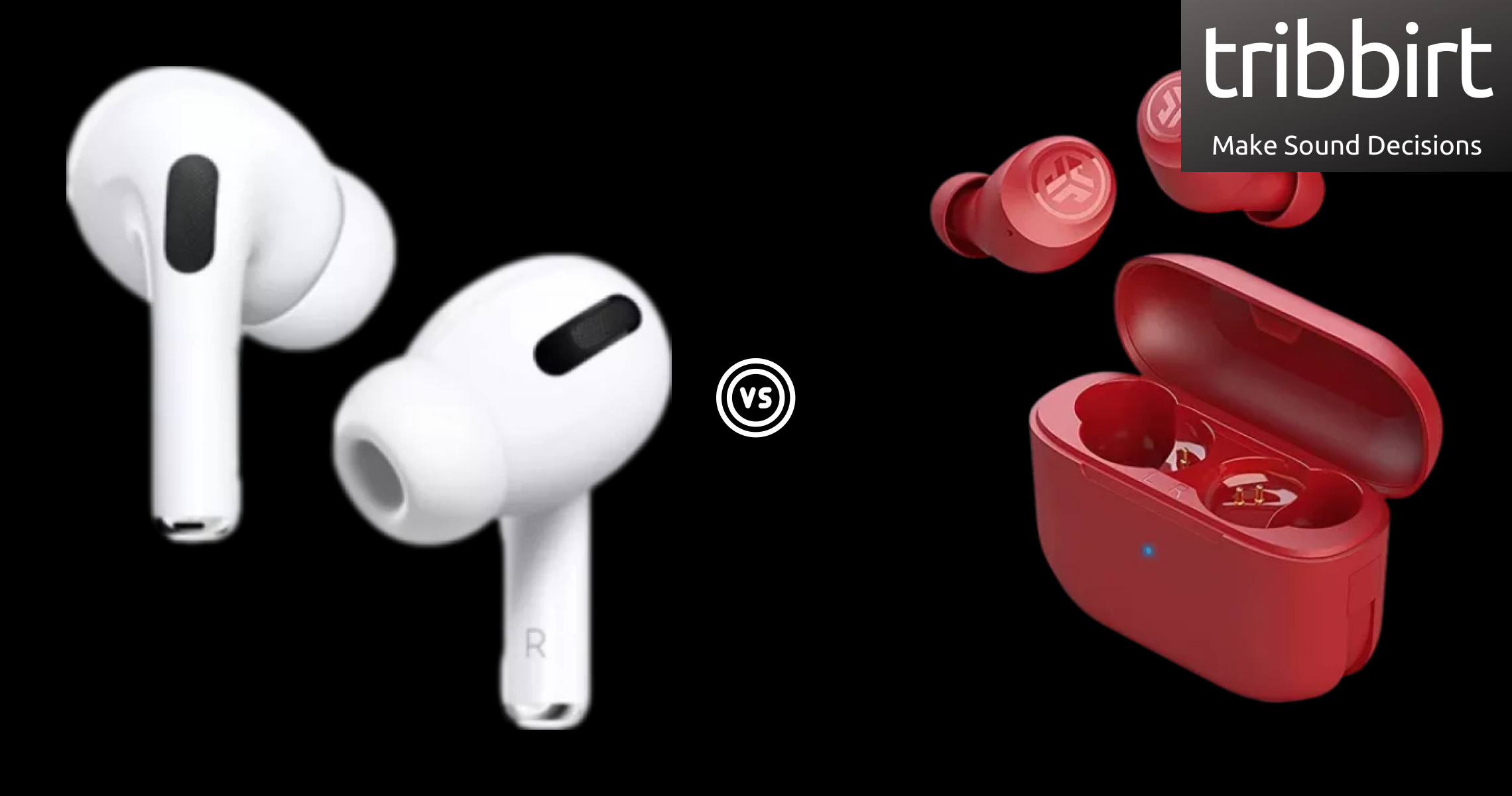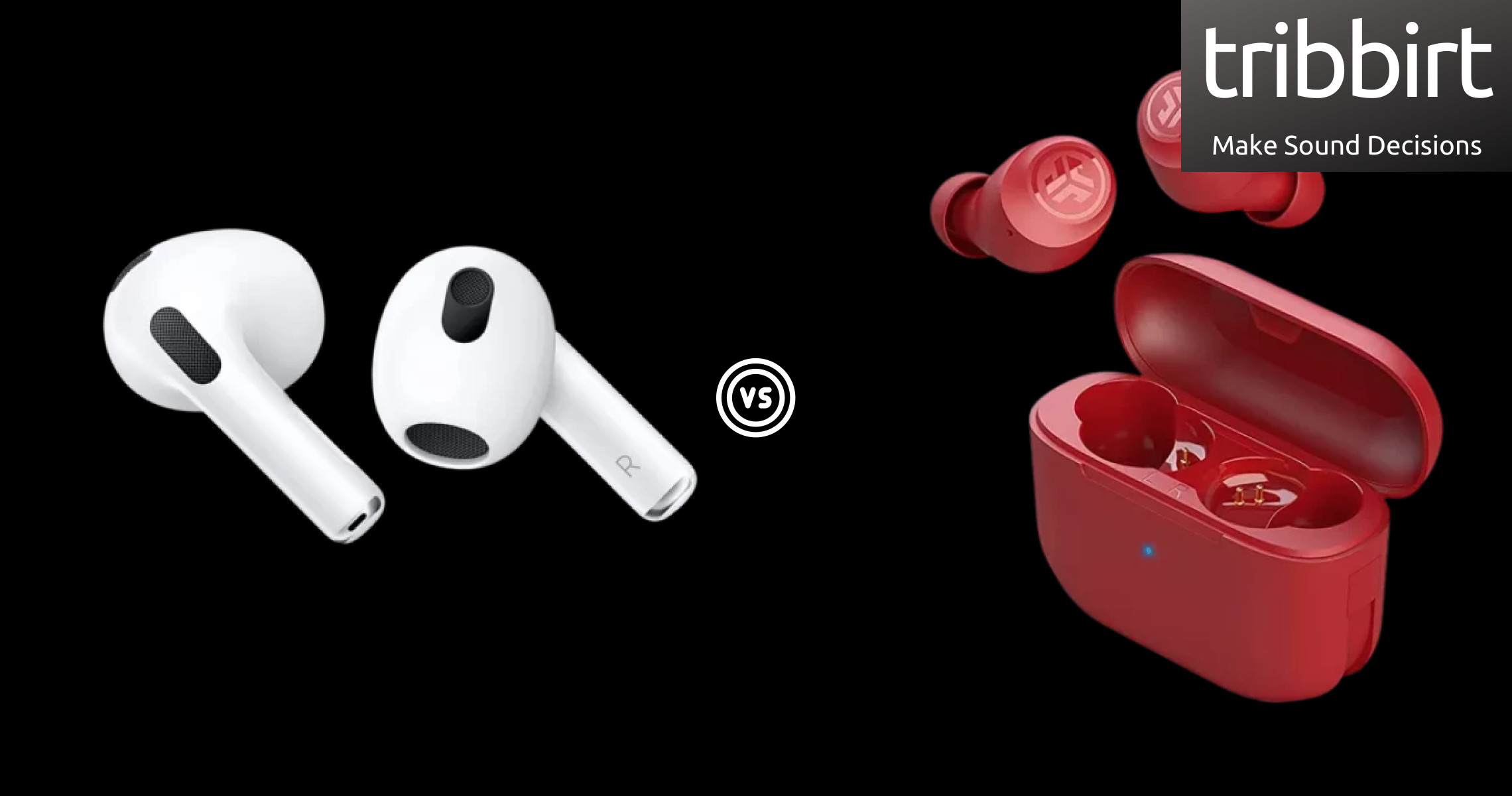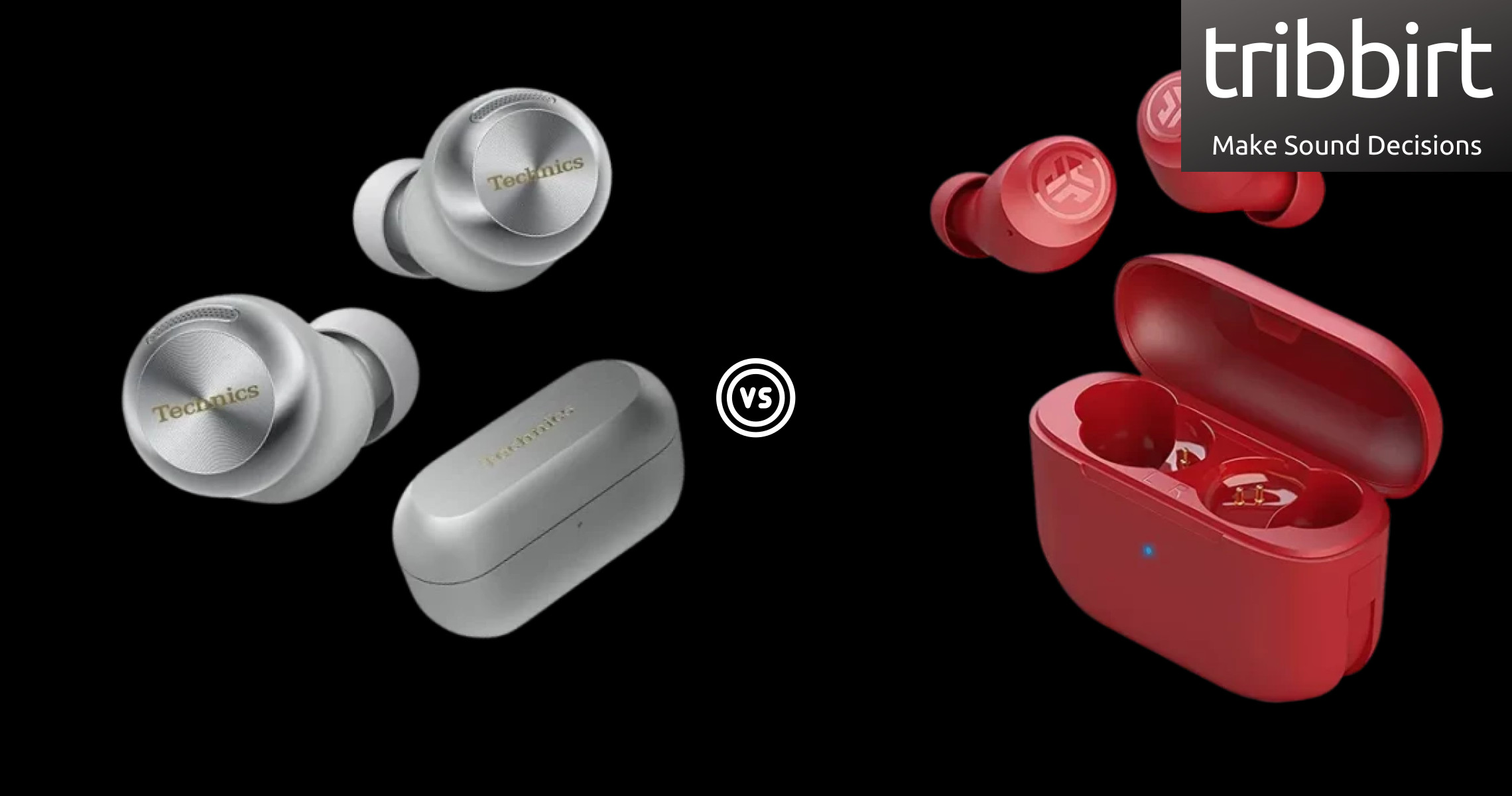IP ratings is the rating of protection offered by a casing, against solids and water. The letters 'IP' are followed by two values The first value of the IP rating represents protection against solids say dust, while the second refers to resistance against liquids (water).
Scoring IPX4, the JLab Go Air Pop's rating for solids indicates that no data available to specify a protection rating, and of liquids that they can withstand low pressure spray similar to that of a shower head when tilted at 180° for 10 minutes. In comparison to the JLab Go Air Pop, Marshall Minor III have a rating of IPX4 meaning that
we are not yet certain of their rating with solids (dust)
and that of liquids is that,
they both have the same rating against liquids
The JLab Go Air Pop have a weight of 7.4g . We take in account a lower weight better because lighter devices are easier to carry.
The Marshall Minor III, at 8g
are heavier than the JLab Go Air Pop with a difference of 0.6g
True wireless devices have no wires connecting any part of the device together, JLab Go Air Pop are true wireless for this case since they don't have wires. This is a major distinction as some wireless earbuds have cables linking the 2 earbuds together. Marshall Minor III also is true wireless since it has no cables connecting the pair of earbuds together.
JLab Go Air Pop are resistant to sweat
Marshall Minor III's resistance to sweat makes both devices fit for use while doing sports such as long-distance running, marathons, training in workout bodysuits, etc
JLab Go Air Pop have stereo speakers, what this means is that JLab Go Air Pop's speakers deliver sound from separate channels on both left and right sides, creating a richer sound and a better listening experience. The Marshall Minor III also have stereo speakers
JLab Go Air Pop stay tightly in place, creating a sound seal that reduces background sounds and also prevents the device sound from leaking out .
The JLab Go Air Pop have a unit size of 6mm in diameter, the bigger the unit the more powerful, and can produce better bass. A driver unit is basically a mini speaker that makes sound in the earbuds, its size dictates the sound produced by the earbuds.
Marshall Minor III driver unit is 12mm in diameter,
making them have a larger driver unit than that of JLab Go Air Pop by 6mm
, a common assumption that driver units of a bigger size automatically produce better sound quality.
However, large drivers usually have difficulty producing high frequencies so yes, larger drivers can generate louder sound, but this does not indicate that they deliver better quality sound. The JLab Go Air Pop's lowest frequency is at 20Hz, low-frequency response inidcates how well a particular audio device produces low frequencies that can be heard, and if it alters the signal while at it.
Marshall Minor III's lowest frequency is at 20Hz, this means that
both devices can make sound with equal bass
The JLab Go Air Pop's highest frequency is at 20,000Hz, high-frequency response tells how well a particular audio device generates high audible frequencies and if it changes to the signal while at it. Marshall Minor III's highest frequency is at 20,000Hz, this means that
both devices generate equal treble
SPL, is the level of pressure of sound, measured in decibels, dB, JLab Go Air Pop's measurement is 103dB/mW. Devices with a higher sound pressure level are generally louder when supplied with any given audio source.
JLab Go Air Pop's battery life is 8 hours, these last longer than 5 hours of listening which is considered average before recharge. A device's battery life is usually given by the manufacturer, and with longer battery life, you get to use it for longer and have to charge the device less often. Marshall Minor III's battery life is
less than that of JLab Go Air Pop by 3 hours
. Each time you recharge your earbuds, they get a little less listening time.
The effect is barely noticeable at first, but over a few years, your wireless earbuds will have shorter listening time. This is given by the vendor, and the JLab Go Air Pop's case has a full charge of 24 hours. A charging case with more battery hours allows you to recharge your earbuds on the go many times before having to recharge the case itself.
Marshall Minor III's charging case has a battery life of 25 hours,
more than that of JLab Go Air Pop by 1 hours
It takes 2.2 hours to fully charge the JLab Go Air Pop's battery. It is highly adivsable to charge fully the battery before using the earbuds when they have been unused for extended periods. Marshall Minor III takes 1.5 hours to fully charge the battery,
less than that of JLab Go Air Pop by 0.7 hours
JLab Go Air Pop have a battery level indicator, an indicator shows you when the earbuds has a low battery.
The battery indicator lights indicate the charging status of your earbuds and case. Marshall Minor III too have a battery level indicator, these allow you to determine the charging state of your earbuds, if charged fully, or having a low battery. JLab Go Air Pop have USB TYPE-C, a standard connector for transmitting both data and power in a single cable.
Marshall Minor III too support USB TYPE-C. This USB-C plug is part and parcel of most current laptops, phones, and tablets. JLab Go Air Pop have Bluetooth version of 5.1, Bluetooth is a wireless technology standard that enables data movement between devices placed in range, using short-wavelength, ultra-high frequency radio waves.
Marshall Minor III has a Bluetooth version of 5.2,
newer than that of JLab Go Air Pop
. Newer versions provide faster data transfers. JLab Go Air Pop have a 10meters distance to connect via Bluetooth. Marshall Minor III have a maximum range of 10meters,
equal to that of the JLab Go Air Pop
JLab Go Air Pop support AAC, a codec that is used for Bluetooth audio.
It supports 24-bit audio at 250kbps. Because it uses psychoacoustic modeling, it provides better results than other codecs at the same bit rate.
Since its the highest quality codec that any Bluetooth-supporting Apple product supports, the JLab Go Air Pop will work well with your MacBook.
If you are planning on using these with Android , ensure that they also support aptX HD, LDAC, or LHDC as well. The JLab Go Air Pop have 2 microphones. While the Marshall Minor III microphones are 2,
equal to that of the JLab Go Air Pop
. More microphones record better sound quality and help the device to filter out noise.
The JLab Go Air Pop microphone sensitivity is measured at -42dBV/Pa. The extent of the analog or digital output signal from the microphone with its input stimulus is a calculation of its sensitivity. It's the 'loudness' of the voice that the earbud microphone can recognize.
JLab Go Air Pop support fast charging. Usually, technologies like MediaTek’s Pump Express, are used to lower the time it takes to fully charge a device. Marshall Minor III support fast charging.
It's very similar to regular charging, only that the battery fills up much faster. Say, with Quick Charge 3.0, the battery can be charged to 50% in just 30 minutes. The JLab Go Air Pop have a mute function, they have the feature to mute/unmute a conversation directly from the device.
The Marshall Minor III also have this function. The mute function means that you can turn off the earbuds' microphone, but you can still hear the other party's voice. With the JLab Go Air Pop, so you can easily access the volume control, pause, play, mute, etc whichever functions are supported on the earbuds.
Marshall Minor III too have a control panel on them. The JLab Go Air Pop have a warranty period of 2 Years, the period of time that warrant free repair and adjustment services in case of a malfunction occurring under normal use following instruction manuals. JLab Go Air Pop support voice prompts.
Automatically receive information via audio messages, say if there is an issue with the connection. Marshall Minor III too support voice prompts .i.e the earbuds notifies you when the battery is running low, and it's time to recharge the device. The JLab Go Air Pop come with their own special case.
Carrying earbuds without a case, or putting them in your pockets without a cover can easily put them at risk of getting damaged. Marshall Minor III too have a travel bag included, which is useful for safe transportation.
